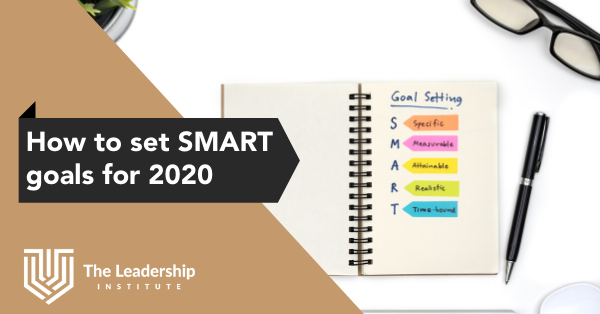It’s that time of year again when we all evaluate every area of our lives and think about what we want to achieve in the year to come. From career to health, family life to finances, many people daydream about what they want to do and hope it will magically happen or come to them, but that’s very far from the truth.
The only way to make all your dreams for the year come true is to set SMART goals for 2020. Not just any goals, they need to be SMART. If you want something, you have to go out and chase it! You need to be clear on exactly what it is you want to achieve, be able to measure it, work out whether it’s achievable and realistic, and put a time frame on it.
You have to make a plan and make it happen. You only get out what you put in, and if your dreams were easy everyone would be doing it, wouldn’t they?
So, the first step for working towards your goals for 2020 is to break down your dreams into goals. Start now, grab a pen and paper. Let’s write SMART goals together.
What are SMART goals?
- Specific
- Measurable
- Achievable
- Realistic
- Time framed
Start with a list of everything you want to achieve in the year, let your mind go wild!
Once you’ve workshopped some ideas, you can start with the first criteria – specific. Let’s take a goal that 98% of people want to do at the start of the year – ‘get healthy’. Having a goal to ‘get healthy’ is not specific. What does this mean? Is it weight loss, is it muscle tone, is it eating more vegetables?
Let’s assume it is weight loss. Specifically, how much? You have to put a number on it. Same for muscle tone, or even eating better. 10kgs? 20% more muscle? 5 healthy dinners a week?
From here, we take the next criteria – measurable – can you measure your goal? If it’s specific you should be able to measure it – any of the examples above can be measured and tracked. That’s what you want, something that makes it very clear to know whether you’ve achieved your goal or not.
Is it achievable? Did you say you want to lose 30kgs by March 31? Now, this probably isn’t achievable without drastically restricting your life or making massive changes and it’s tied to the next step, which is realistic. Given how you run your life now, considering all lifestyle factors and knowing we all only have 24 hours in a day, can you achieve what you have set out to do in the timeframe available?
And that’s how we arrive at the last criteria – time framed. You probably can lose 5kgs by March 31. That’s probably realistic and achievable, but not 30kg!
If you take all of your goals on your list from all areas of life and apply these criteria to it, you should come up with a few that you can commit to achieving. Or even one. One is better than none!
You should keep track of your efforts. It will be easier to stick to your goals if you can both see what you are doing and visibly recording the results. Seeing yourself get some small wins can be amazing for motivation! Tell someone about them – verbal commitment is hard to break, and we are social animals – social proof can help you stick to and achieve your goals.
If your goal is career orientated, say getting a promotion, setting and tracing your goals can help prove that you’re worth it. You can take your goal tracker into your next performance review. Metrics are hard to argue against, especially if they have proven results. They show initiative and commitment, what employer doesn’t want to see that?
Well there you have it, my top tips on how to set SMART goals for 2020. I wish you all the best with your goal setting and I hope you enjoy the process!
If you’d like to learn more about career goal setting, The Empowered Woman is the event for you! To be held in Sydney on March 26, you’ll learn how to break down your career goals into achievable steps and gain the tools to support your journey to the job from Australia leading businesswoman. Tickets for this one-day event will sell out quickly, so don’t miss out. Get your tickets today!


